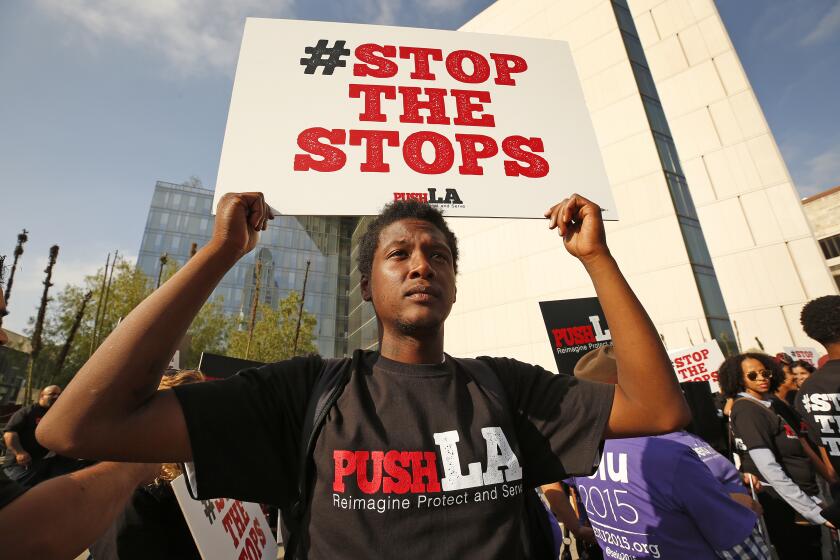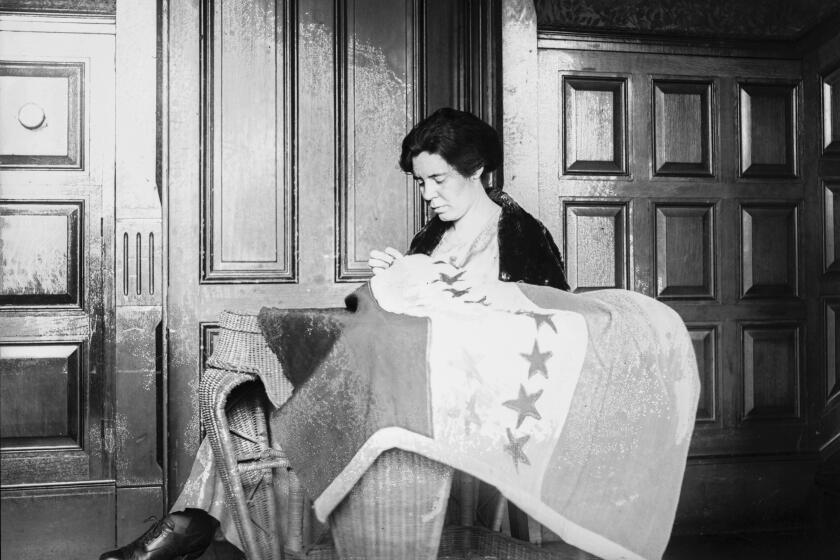Editorial: The Boston Marathon bombing was a horrific crime, but Dzhokhar Tsarnaev should not be executed
Seven years ago brothers Tamerlan and Dzhokhar Tsarnaev packed two pressure cookers with nails, BBs, and black powder drained from fireworks, then detonated them with toy-car remote controls near the finish line of the Boston Marathon. The carnage was horrific: The explosions and shrapnel killed three people and maimed more than 260 others, many of whom lost limbs or suffered other gruesome wounds. Three days later the bombers shot and killed a transit police officer, and the next day Tamerlan Tsarnaev died in a shootout with police as the brothers tried to escape a manhunt. Dzhokhar Tsarnaev, wounded, was found a short time later hiding in a stranger’s boat stored behind a house.
The terrorist attack — the brothers were Chechen refugees seeking revenge for what they saw as U.S. attacks on Muslims — stunned the nation and still haunts Bostonians. Some of those wounds were opened anew three weeks ago when a federal appeals court threw out Tsarnaev’s death sentence, ruling that the trial judge erred in not sufficiently screening jurors for bias or ordering the trial moved out of the scarred city to a place where passions, and the thirst for revenge, might not be so strong.
A proposal to reassign traffic ticket duties to unarmed, non-LAPD officers is fine in principle, but we better vet the possible consequences.
The conviction itself stands; Tsarnaev never denied guilt, although he tried in vain to persuade the jury that he had been led astray by his older brother. But the appellate ruling has left the federal Justice Department with a thorny choice: Does it appeal the decision, opt for a fresh sentencing trial, or embrace the sentence of life without parole that still stands for some of the other crimes of which he was convicted?
We suspect Atty. Gen. William Barr will push for a fresh death verdict. This summer, with the self-proclaimed tough-on-crime president facing a tough reelection fight, Barr personally directed the federal government to resume executions after a nearly two-decade year hiatus, putting three men to death last month over a span of three days. Next week it intends to execute Lezmond Mitchell, a member of the Navajo Nation who was convicted of murdering a woman and her 9-year-old granddaughter on tribal lands. Two more executions have been scheduled for September.
According to the Death Penalty Information Center, Mitchell’s execution would be the first time in more than half a century that the federal government has put to death a Native American seemingly in defiance of the spirit, if not the letter, of the federal Major Crimes Act, which bars the federal government from seeking the death penalty without the approval of the tribe for crimes committed on tribal lands against a tribe member. The Navajo Nation opposes imposing the death penalty on Mitchell.
So it seems likely that the federal government will press ahead in the Tsarnaev case by appealing the decision that threw out his death sentence or by demanding a new sentencing trial. But it shouldn’t do either.
The Times editorial board has long opposed the death penalty as an affront to justice and human decency. The system is too prone to manipulation to rely on for determining whether someone should die; more than 165 death row inmates have been exonerated since 1973. Death sentences also disproportionately fall on people of color and the poor, a chilling example of American society’s broader problems with institutional racism. Further, two identical murders in the same state but in separate counties can elicit different sentences, one death, one imprisonment, depending on how local prosecutors decide to apply the same state law. That is the very definition of arbitrary.
A century after women were guaranteed the right to vote with the 19th Amendment, the struggle for equality and voting rights continues.
Supporters of capital punishment might note that the Boston Marathon bombings involved no such ambiguities. Neither did the 2015 murders of nine Black churchgoers by a young white supremacist in South Carolina and countless others violent acts that result in death. Hatred and intolerance live among us, as do cold-blooded schemers, angry or emotionally unstable people, and those who believe that violence is an acceptable solution to their troubles.
But it is not the solution, it is the problem. If we want a less violent society, it makes little sense to let our state and federal governments perpetrate acts of violence.
If executions were a deterrent to killing, this nation would not have been inflicted with as much criminal violence over the years as it has been. In fact, we are about the only developed society that still clings to this barbaric practice of punishing people by putting them to death.
Capital punishment in the U.S. serves no penological purpose; it is essentially the government stepping in to extract revenge on behalf of rightfully angry and distraught victims. That is not justice. That is not how a mature society works.
Pushing to execute Tsarnaev would once again engage the government, on behalf of the people, in a violent and fundamentally inhumane act, the intentional taking of a life. To drop the death penalty and spare the lives of condemned killers like Tsarnaev and Mitchell would not be acts of mercy toward them, but toward ourselves.
More to Read
A cure for the common opinion
Get thought-provoking perspectives with our weekly newsletter.
You may occasionally receive promotional content from the Los Angeles Times.












